MFL Department IntentThrough our MFL curriculum at Sidmouth College we ensure that students develop and practise their knowledge of French across the three pillars of Phonics, Vocabulary and Grammar. Regardless of ability or background all students have an entitlement to experience the enjoyment of learning a language. We therefore follow an engaging and culturally enriching curriculum which incorporates not only the four skills required for learning a language but also expands their cultural capital. Students will appreciate different customs and traditions through the exploration of film, music, video and trips. Our intent is to instil confidence and enrich vocabulary thus developing oracy and widening horizons for all. Our pupils are independent and curious and have the skills and confidence to learn any language needed in their career or future study, or to read and watch content of their choosing in French. All pupils are equipped with the knowledge and skills needed for success at GCSE or to use the language successfully in a real-life situation. At Key Stage 4 we build on the strong foundation and enter the vast majority of pupils at Higher Level. Key stage 3
What do students study?
All students study French throughout Key Stage 3. Throughout the Key Stage our aim is to help students develop the confidence to use the language in a practical way. The topics covered are those that are relevant to students and enable them to talk about themselves. All students study French throughout Key Stage 3. Throughout the Key Stage our aim is to help students develop the confidence to use the language in a practical way. The topics covered are those that are relevant to students and enable them to talk about themselves. Lessons are lively and practical and we help students develop the four main language skills of listening, speaking, reading and writing, as well as dictation and translation. We also cover grammar and encourage students to use reference materials to help their learning and to become independent learners. A variety of revision, consolidation and extension activities help students to transfer language from one context to another and to adapt the language patterns they have learned. There is also support for those students who may feel less confident in their language learning. We use computers extensively to enhance language learning and are increasingly using our new Sanako language laboratory to develop students’ oral confidence. Our website www.frenchatsidmouth.com supports both lessons and homework and allows parents to learn long with their child. How are students assessed? Assessment is little and often with students being tested once every three week. The Week 3 assessment consists of recent vocabulary or a recent grammar point. One of the skills of Listening, Reading, Dictation, Translation or Writing is assessed in the Week 6 test. We report making distinct the cumulative average for Week 3 tests and Week 6 tests. Students’ speaking is assessed formatively through lesson activities. Key stage 4
WHO IS THIS COURSE FOR? Anyone who has enjoyed their French language lessons at Key Stage 3; anyone who wants to have a widely valued GCSE; anyone considering going to university; students wishing to achieve the English Baccalaureate qualification. Please note you can only choose French as an option if you studied French in Years 7 and 8. EXAM BOARD, COURSE CONTENT & ASSESSMENT DETAILS EXAM BOARD: AQA COURSE CONTENT: You will expand upon the work that you did at Key Stage 3, so many of the topics will be familiar to you. The three themes on which assessment is based are : Theme 1: Identity and culture Theme 2: Local, national, international and global areas of interest Theme 3: Current and future study and employment Assessment: All four languages skills will be assessed in the summer exam session of year 11. There are no controlled assessments. Students will be entered for either Foundation or Higher level. Listening component (25%): Understanding and responding to different types of spoken text. Half the answers are written in English, half are written in French or German Speaking component (25%): Communicating and interacting for a variety of purposes by completing one role play, one photo card discussion and one general conversation. Reading component (25%): Comprehension questions from authentic written text, and the completion of one translation task from French/German into English Writing component (25%): Three or four written tasks which could include a message, a bullet pointed list, a structured written tasks and one translation task from English into French. WHAT CAN THIS COURSE LEAD TO POST 16? Further study at A Level and then moving forward to a straightforward Languages Degree or a combination with such subjects as Business, Tourism, Computing, Psychology, Media, Film and Television, Performing Arts, Sport, Sociology, Education, Accounting, Marketing, Human Resources, Management, Health Studies, Geography, Mathematics, Art and Design, English, Philosophy, Law, Economics, Music, Journalism, International Relations, History, Archaeology, Engineering, Law. FOR WHAT CAREERS WILL THIS COURSE BE USEFUL? Business services, Central Government, Construction, Creative and Media, Engineering, Event Management , Financial Services, Medicine, Hotel and Catering Management , Land-based and Environmental Work, Local Government, Manufacturing, Marketing, Public Services, Retail, Teaching, Technology and Computer Gaming, Translation and Interpreting , Travel and Tourism, Voluntary and Charitable Sector, Law. |
Access Octomono Masonry Settings
Subjects
All
|
- Home
-
About Us
- About our School
- Board of Governors
- Careers & Education Guidance
- Contact
- Equality
- Ethos and Values
- Exam Results >
- Hire of School Premises
- Links & Partnerships
- Ofsted Reports
- Our People
- Performance Data
- Policies
- Principal's Welcome
- Pupil Premium
- SEF & College Priorities
- Sidmouth College Way
- Ted Wragg Trust
- Vacancies
- Visitor Information
- Wellbeing at School
- Admissions
- Learning
-
Parents
-
Students
- Sixth Form
Useful links |
Navigate |
|
© Sidmouth College 2020 | Primley Road, Sidmouth, Devon EX10 9LG | Website design by Bright Blue C









